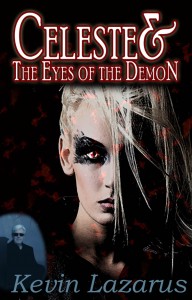Posts Tagged ‘Fantasy Fiction Author’
Corrupting the Artist Within You, by David Farland
(From David Farland’s Daily Kick in the Pants) Selfish Art
There is a problem with the arts, one that I have not addressed, and it is this: If you have the fortune (or misfortune) of being a gifted artist, it can corrupt you.
If you are a gifted artist, people will tend to be moved by your art. They will praise you in private letters, offer you awards, present you with valuable gifts, fawn over you, seek to seduce you, and so on, and this can corrupt and destroy you.
It starts innocently enough with praise. Every author that I know of feeds on praise to some extent. We need praise. I was fascinated a few months back to learn that the single biggest factor to predicting longevity is the “approbation of our peers.” When others praise us consistently and admire our efforts, it reduces the harmful stress in our lives and not only allows us to perform at our peak, but also lengthens our years.
But praise is a fickle thing, and few artists have a career where they are praised and receive awards on a regular basis. I have known authors who received early praise to grouse when a competing author receives a rave review, wins an award, or hits high on the bestseller list. Such authors become ravaged by jealousy and despair, to the point where such authors have been known to fall into alcoholism, drug addiction, or suffer from suicidal tendencies.
Even worse, praise is so often insincere. It costs nothing to give, and so has little real value.
Other authors buy into the belief that their talent makes them inherently superior to others, so that they somehow exist in an elevated realm above the rest of humanity, and feel entitled to favor. I was recently speaking to an author who was hoping to get an endowment from a wealthy patron. I wondered, “Have you ever considered actually working for your money? It’s not very hard to make, if you work for it.” I actually suggested a couple of ways for her to make the money she wanted—all of which per promptly rejected.
When authors become puffed up in pride, they often become demeaning or dismissive of others, and I know of authors who love to ridicule and condemn their competitors in an effort to boost their own reputation. Such authors often treat the unwashed masses with contempt, having no patience with waiters, hoteliers, or similar “little people.” Very often, such authors blind themselves to the strengths and talents of others to the point that they look doubly foolish.
This sense of entitlement often is manifested in sexual aggression. I’ve known several male authors who could not be trusted to enter into an elevator with a pretty girl who was alone. Back during the 19th Century, authors of genius tended to die from social disease so often that it became cliché.
In short, talented artists may create wondrous things but become pathetic, miserable, self-destructive people. I’m reminded by this again and again when I read about people like Poe, Michelangelo, Paganini, Mozart, and most lately Tolstoy. more »
Fostering Multiple Revenue Streams, by David Farland
(From David Farland’s Daily Kick in the Pants)
You probably know that I’ve trained a lot of successful authors over the years. I was listening to some of them teaching at a writing seminar last week, and it struck me that those authors who have succeeded best in this field are those who learned one of my first lessons best: Foster Multiple Revenue Streams.
What does this mean? Well, many authors, the ones who fail, typically publish a novel and sell the North American rights to it, then try to write another novel and do the same, again and again and again. Eventually something happens and their revenue stream gets blocked—either they can’t deliver a manuscript on time, or a publisher squeezes them in harsh negotiations, and the author suddenly runs out of money and has to go back to work in another field.
But successful authors look for ways to create several revenue streams. Very often, this means that the author might write in two different fields. For example, I write adult fantasy and middle grade books. If one revenue stream gets blocked, I’ve always got another.
You can have all sorts of revenue streams. For example, selling foreign rights can be very lucrative. Many authors who don’t make a lot of money in the United States, for example, might be very popular in other countries—the United Kingdom, Germany, Japan, and so on. I’ve known authors who don’t even publish in the United States anymore, but who make a living on foreign sales.
Authors can make money in a host of other ways—through speaking fees, by teaching, by writing in different mediums (for example, if you’re writing a novel about an entomologist, you might do some research on ants, and write articles for magazines on the topic in order to gain some expertise in the field).
So each year, I keep track of my anticipated revenue sources. Here are my sources for the coming year:
1. Screenplay sale for Runelords. (I’ve been approached by a producer to write the screenplay and put the film into production.) more »







